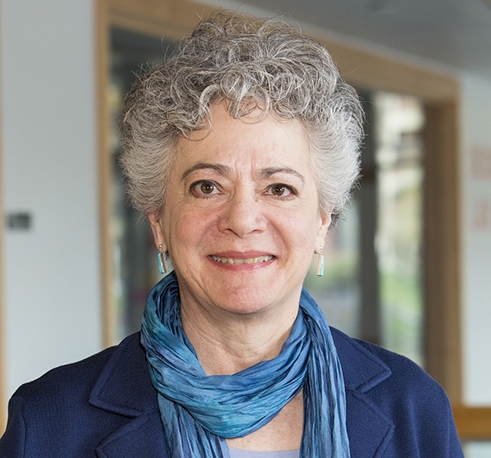Visiting PBK Scholar to Discuss Artificial Intelligence Design and Impacts

MIDDLEBURY, Vt. – For centuries, people have imagined smart machines inhabiting the earth in fictional stories. As these “intelligent” machines cross over from the realm of fiction into reality, the impact of this technology on people, communities, and society at large takes on new urgency. Those thorny issues will be the focus of a public lecture, “Intelligent Systems: Design and Ethical Challenges,” by Phi Beta Kappa visiting scholar Barbara Grosz on February 27 at 4:30 p.m. in McCardell Bicentennial Hall, room 216.
Grosz, the Higgins Professor of Natural Sciences at Harvard’s School of Engineering and Applied Sciences, is considered a leader in the field of Artificial Intelligence (AI) and an advocate for the advancement of women in science. She is known for her pioneering work that includes establishing the research field of computational modeling of discourse, developing some of the earliest computer dialogue systems, models of collaboration, collaborative multi-agent systems and collaborative systems for human-computer communication.
“We feel very fortunate to be able to bring someone of Barbara’s stature to our academic community,” said Professor of Computer Science Daniel Scharstein, who helped organize Grosz’s visit. “These are very timely issues that will end up impacting all of us at some point.”
Grosz’s talk will describe some basic AI techniques in the context of science fiction imaginings and examine their strengths and weaknesses, with the goal of illustrating ways to distinguish fact from fiction. She will also discuss ethical challenges these technologies pose, and examine the roles of design and of policy in increasing benefit and reducing potential negative impacts.
Barbara Grosz’s appearance is supported by the Phi Beta Kappa Society’s Visiting Scholar Program, which offers undergraduates the opportunity to spend time with some of America’s most distinguished scholars. The program contributes to the intellectual life of the institution through the exchange of ideas between visiting scholars and the resident faculty and students. In addition to her public talk, Grosz will visit classrooms, spend time with students and faculty, and give a guest lecture to computer science students.
Grosz’s talk is free and open to the public.

